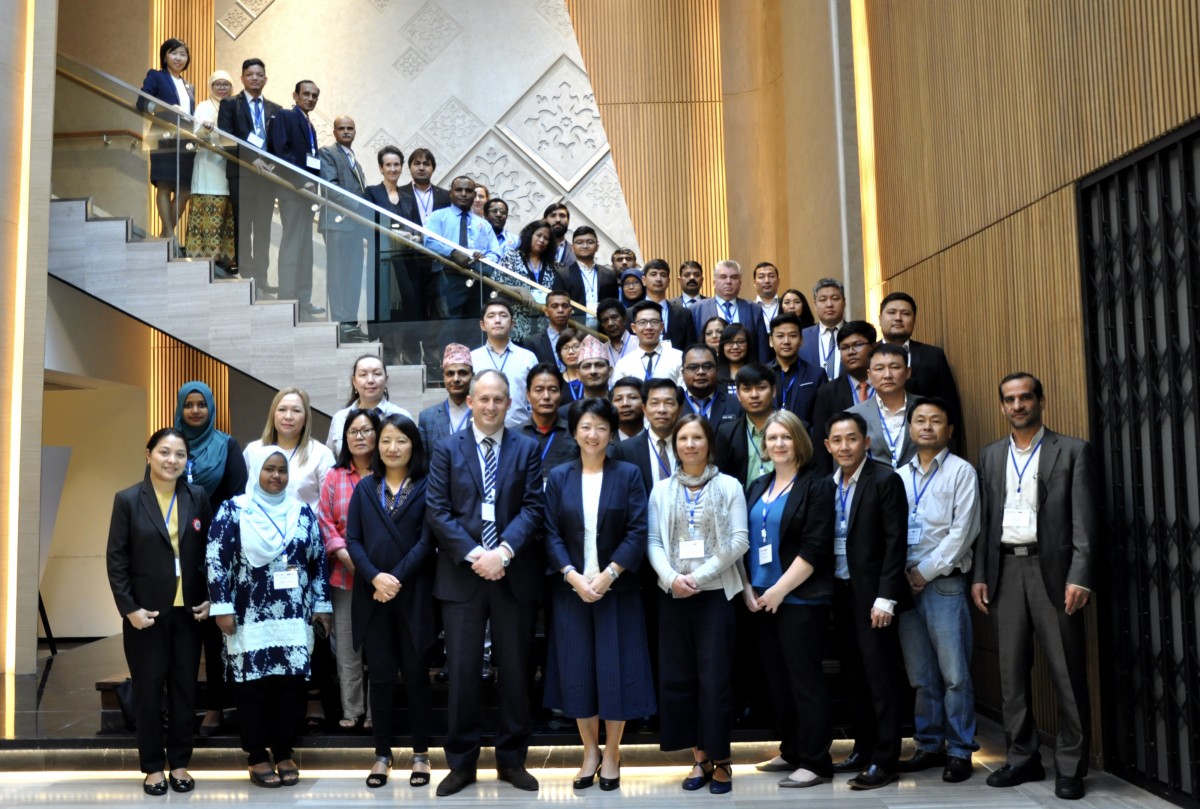From March 12 to 15, over 45 education assessment specialists from over 20 countries across the Asia-Pacific region met in Bangkok, Thailand, for a capacity development building workshop organized by the Network on Education Quality Monitoring in the Asia-Pacific (NEQMAP), coordinated by the UNESCO Asia and Pacific Regional Bureau for Education (UNESCO Bangkok).
The workshop focused on data quality and accuracy and was made possible through a grant from GPE under its Assessment for Learning (A4L) initiative. While the majority of the workshop consisted of training elements delivered by experts from the Australian Council for Educational Research (ACER), this occasion was also used to discuss possible future directions of the network, which will be celebrating its fifth anniversary in two days (on March 28th).
Building capacity to better assess learning
The meeting also served to showcase ongoing regional and global initiatives such as the Pacific Island Literacy and Numeracy Assessment (PILNA) and South East Asian Primary Learning Metrics (SEA-PLM), as well as GPE’s A4L initiative and the ongoing work of the Global Alliance to Monitor Learning (GAML). As always, the workshop also reinforced strong ties among NEQMAP members.
The work on capacity building looked at three phases of the assessment cycle: sampling; standardized field operations; and data management. It is our expectation that enhanced capacities in these areas will benefit countries in the region – including participating GPE partner developing countries – with greater abilities to enable evidence-based policy-making in addition to reporting on progress towards international development goals.
This, in turn, may contribute to enabling the citizenry of these countries to hold education providers to account in achieving the right to education for all, as per Sustainable Development Goal 4: “inclusive and equitable quality education and promote lifelong learning opportunities for all”.
For GPE, specifically, better data on its Results Framework Indicators 1 on learning achievement and 15 on learning assessment systems may be expected, which is especially relevant now that an increasing number of countries in the region has become eligible for GPE funding.
Participants value sharing experiences and good practice

In early March, over 45 education assessment specialists from over 20 countries across the Asia-Pacific region met in Bangkok, Thailand, for a capacity development building workshop.
©UNESCO/Lingxin Han
The workshop evaluation and a survey on future directions of NEQMAP, implemented on Day 4 of the event, clearly reflected the positive impressions of workshop participants, with several countries (Iran, India, Indonesia, Republic of Kazakhstan) joining for the first time, including two of the world’s largest education systems (India and Indonesia).
For example, as one participant from Vietnam noted, “NEQMAP has done great things [in terms of] monitoring the quality of education, building activities such as conferences or workshops, and making a strong connection between countries to exchange the knowledge and experience”. Another participant, from the Philippines, commented that the network “has provided an excellent platform for sharing of expertise and experiences across countries and help in capacity building”.
NEQMAP will continue work in its core activity in the coming years
For certain, the survey on future directions also provided the NEQMAP Secretariat with useful input on where to focus activities in the next few years: for example, conducting an own (sub-) regional assessment, in conjunction with other existing assessments; delivering direct technical assistance to countries; and even developing its own journal.
However, when reflecting on the future of NEQMAP, the one thing that was most highlighted by participants as something that the network should engage in, was the development of capacity in the region. This is what NEQMAP, more than anything else, intends to continue to do with the support of its partners: ensure learning assessment systems are strong in this world region, which is home to close to two thirds of the world’s population, so that advances towards SDG 4 can be assessed – and contributing to knowledge as to where more work is needed, so that effective interventions can be designed.
Now at five years in existence as a regional platform, NEQMAP looks forward to the continued support of GPE and other partners in its efforts to support countries in strengthening their learning assessment systems and thereby to making an important contribution to improving children’s learning in the Asia-Pacific.
